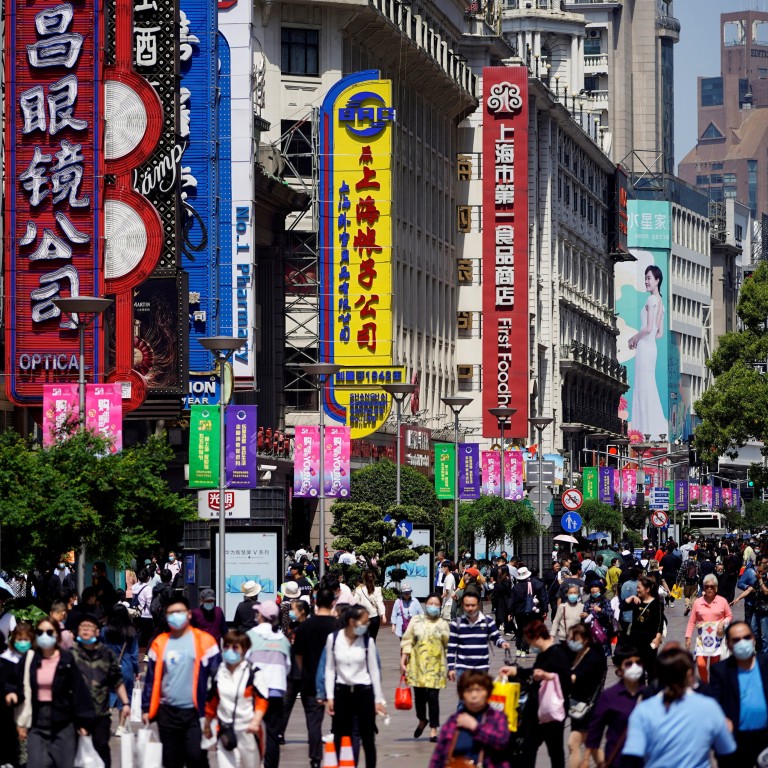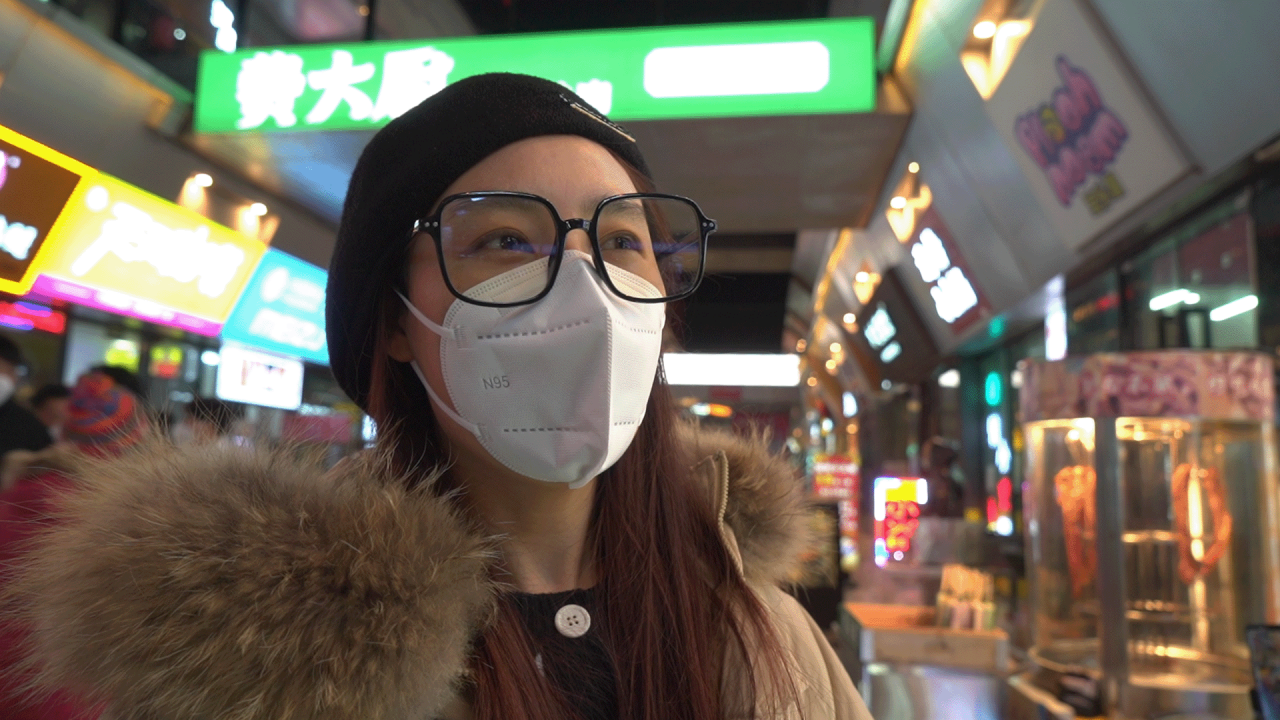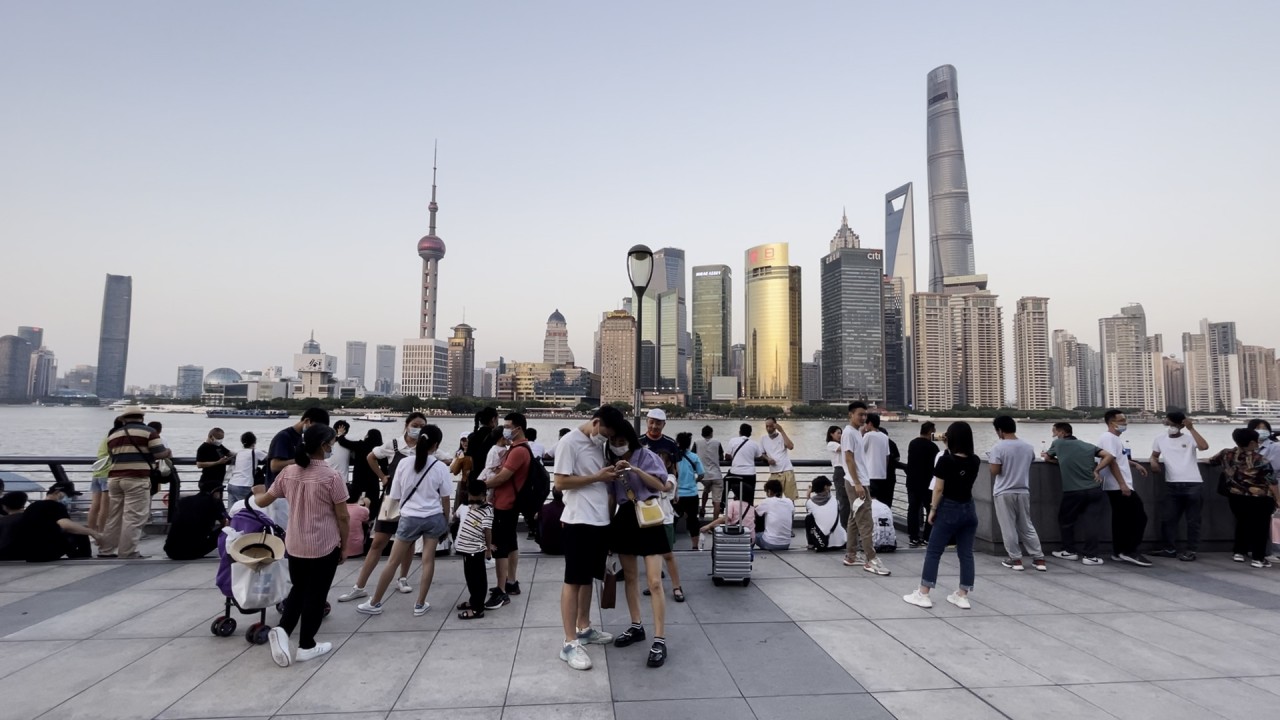
Zero-Covid pivot puts Shanghai’s small businesses on emotional roller-coaster as curbs loosened, infections surge
- Beijing’s efforts to soften its anti-pandemic approach work like a double-edged sword for small businesses as infections temper optimism
- Failure to tackle the pandemic in the coming months can deliver a fatal blow to businesses, CEO of a printing material firm says
Some owners in China’s main commercial hub believe they will soon be able to restore manufacturing and commercial activities to pre-lockdown levels in 2019, while others fear customers will shun public venues like eateries and malls in the coming months.
“It is a do-or-die moment for us,” said Han Haifeng, chief executive of Shanghai New Era Printing, which currently produces 60 per cent of its normal annual output of packaging materials. “We will have to cut jobs further, if the country cannot overcome the pandemic in the next one or two months.”
The State Council last week issued more guidelines to soften its anti-pandemic approach, scrapping daily mass testing, health codes and centralised quarantine requirements for most cases. Investors have helped lift the value of local stocks by US$11 billion since an earlier directive on November 11 fuelled so-called reopening bets.
As China hits record 40,052 daily cases, can zero-Covid policy continue?
“If the virus were to spread fast, no customers would patronise my restaurant,” said Wang Xuliang, who operates the Suiyi eatery in Pudong. “I would have to suffer a monthly loss of 100,000 yuan if the restaurant could not generate sales.”
Retail businesses in Shanghai, a city of 26 million residents, took a heavy toll from the lockdown in April and May. Retail sales plunged by 48.3 per cent year on year in April, followed by a 36.5 per cent slump in May, government data showed.
The prospects of an end to zero-Covid policy have spurred economists to raise their forecasts for corporate earnings in the coming months. Assuming China further loosens its policy after the National People’s Congress in March, companies in the CSI 300 Index are expected to post a 15 per cent growth in 2023 versus 4 per cent in 2022, UBS Securities said in a December 5 report.
Investors show what the end of zero-Covid will do to China’s stock markets
Small-business owners would disagree, said Chen Xiao, chief executive of Shanghai Yacheng Culture, a firm that deals with marketing and branding for retail companies.
“Surging infections in the coming two or three months will be detrimental to thousands of small businesses since they may run out of cash and confidence,” Chen said. “Local authorities will need to roll out more tax incentives and subsidies to help them out.”
During the past lockdowns, local authorities in Shanghai offered 140 billion yuan in tax sweeteners, cut a range of fees and exempted certain designated companies from paying rent on state-owned properties for three months. Banks were also asked to give low-interest bridging loans to struggling companies.
Quan Heng, the city’s Communist Party secretary and a researcher of the Shanghai Academy of Social Sciences, said privately-owned small companies were the main victims of the stringent lockdowns. The city would make new policies to help them stay afloat and retain jobs.
“Small companies are in a difficult situation and it is necessary for the city government to offer them strong support,” he said.



